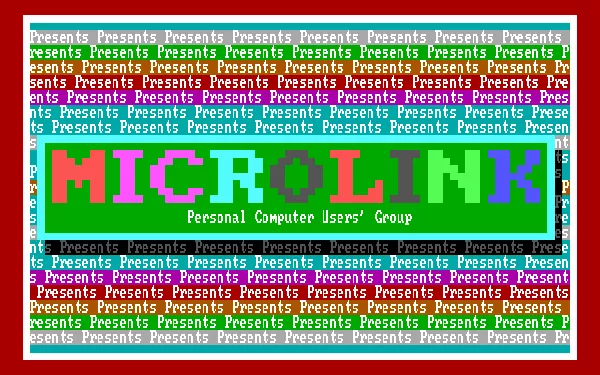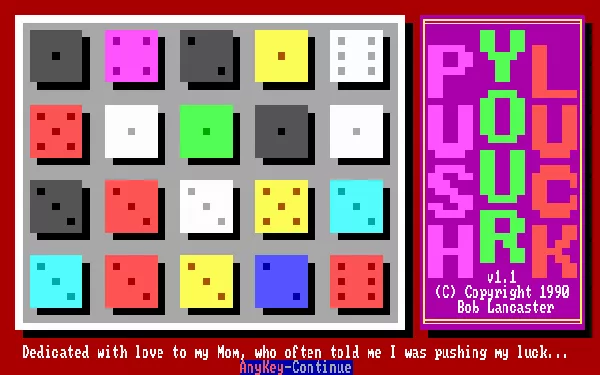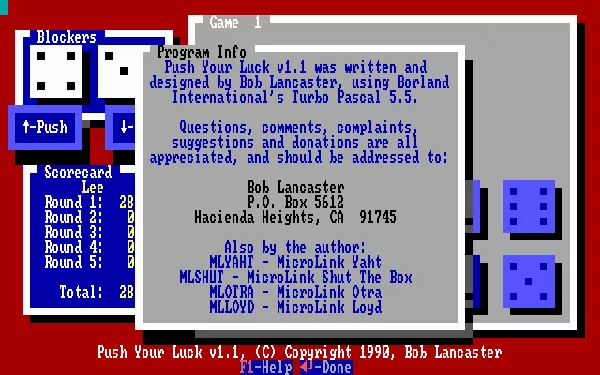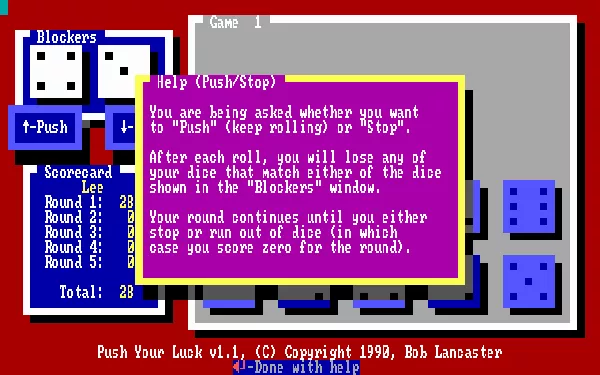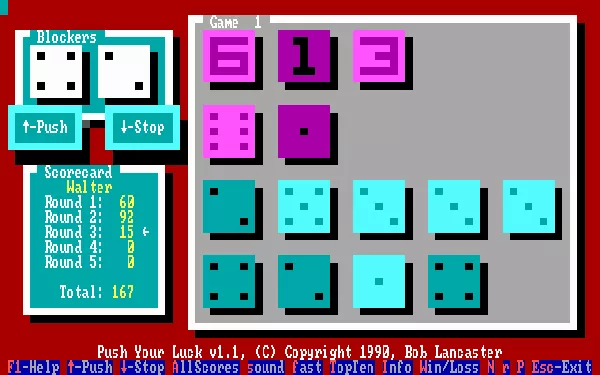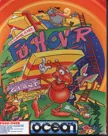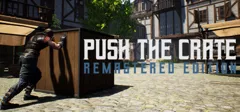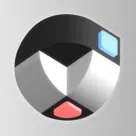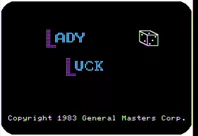MicroLink Push Your Luck
Description official description
Push Your Luck is a version of a classic dice game. Each round, you roll two dice as "blockers." Then roll five dice as long as you wish, getting the number of points each die shows. The catch is if you roll the same number as one of the blockers (it's possible, but unlikely, for both blockers to be the same number), you don't get points for that die and can no longer roll it. If you keep rolling until you roll all blockers, you get zero points for that round. You may stop at any time. There are a total of five rounds. The player with the highest total for the game wins.
For example, assume 2 and 5 are your blockers. On your first roll, you roll 3, 5, 4, 1, and 3. You get 11 points (3 + 4 + 1 + 3) and the die you rolled a 5 on is removed from play. Your next roll, you roll 2, 3, 5, and 5. Your total is now 14 (11 + 3), but you've only got one die left to roll. This is a good time to stop! (Don't push your luck too much.)
The game was designed for PC/XT/AT computers with any kind of monitor. The graphics are made up of "ANSI characters," which allow for a more colorful display than CGA would have. Simple sound is provided by the PC speaker.
Groups +
Screenshots
Credits (DOS version)
| Programming | |
| Play-testing design (with real dice) | |
| Playtesting |
Reviews
Players
Average score: 3.8 out of 5 (based on 1 ratings)
Simple graphics and sound, but great gameplay!
The Good
Options, options, options! Play with the keyboard or mouse. (Or let one player have each to avoid changing chairs every round.) Play with pips or numbers on the dice, choose which prompts appear, turn the sound off, use fast mode to skip the dice-rolling animation, view online help at almost any point. You get the picture.
Speaking of the picture, the graphics may look simple, but they're certainly more colorful than CGA. They do fine for a game of this kind. And there's an option for monochrome monitors, too.
The best feature of all is that it tracks your top ten scores. If you don't have someone to play against, see if you can beat your own high score. (I've been tracking my scores for eight years now.) And it's free unless you feel like making a donation! (There is no "registered" version. You get a fully playable game.)
The Bad
Hindsight is 20/20, and unfortunately, while this game plays fine on faster 286s, the animations and sound are too fast for Pentiums. The game plays just fine, things just go by almost as fast as in fast mode all the time. (Unless you use a program like Moslo.) I find it best to just turn the sound off in these cases.
The Bottom Line
This is an addictive dice game. Playing on the computer means you don't have to do the math yourself or chase errant dice. You'll learn the agony of watching your score go into the hundreds on a single round, only to suddenly roll all blockers and watch it go back to zero. Argh! Obviously, you'll have to try again. 8)
DOS · by Lee Seitz (711) · 2000
Trivia
References to the game
This game was featured in Stupid PC Tricks by Bob LeVitus and Ed Tittel (1991, Addison-Wesley Publishing, ISBN 0-201-57759-3).
Analytics
Upgrade to MobyPro to view research rankings!
Identifiers +
Contribute
Are you familiar with this game? Help document and preserve this entry in video game history! If your contribution is approved, you will earn points and be credited as a contributor.
Contributors to this Entry
Game added by Lee Seitz.
Additional contributors: Patrick Bregger.
Game added September 1, 2000. Last modified February 27, 2023.
